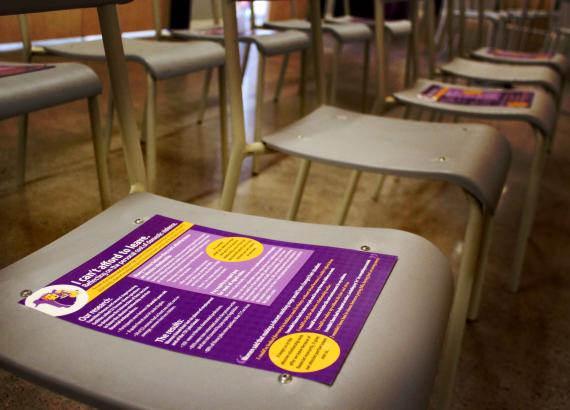Saint John – The New Brunswick South Central Transition House and Second Stage Coalition and the New Brunswick Coalition for Pay Equity held a Lunch & Learn to reflect on the intersection of women’s economic security and domestic violence.
The two organizations presented the results of a research on the intersectionality of poverty, pay inequity, and the vulnerability to domestic violence. The research, based on questionnaires filled by former clients of New Brunswick second stage facilities and transition houses, looked at the link between women’s wages and their ability to leave an abusive relationship.
“Getting the courage to leave a controlling and abusive relationship is difficult enough, but when you are making close to minimum wage, you’re often not able to find safe affordable housing and worry about adequately supporting your children. This increased anxiety is overwhelming,” says Debrah Westerburg, coordinator of the Transition House and Second Stage Coalition.
The data from the questionnaires revealed that the majority of women were employed in predominantly female fields in the private sector, such as home care, retail, and administrative positions. The lack of pay equity legislation in the private sector means they are unlikely to receive a fair wage.
“Fair wages would change women’s lives in considerable ways. Pay equity would have a positive impact on women in the workplace, but also at home. The lack of financial stability worsens an already difficult situation and we believe that pay equity can and should be part of the solution,” says Frances LeBlanc, the Chair of the Coalition for Pay Equity.
Workers from the sector provided testimonials about their experience: Social worker, Julia Forgrave, and Executive Director, Elaine Stewart, from Second Stage Safe Haven and Mary Saulnier-Taylor, the Director of the Coverdale Centre.
